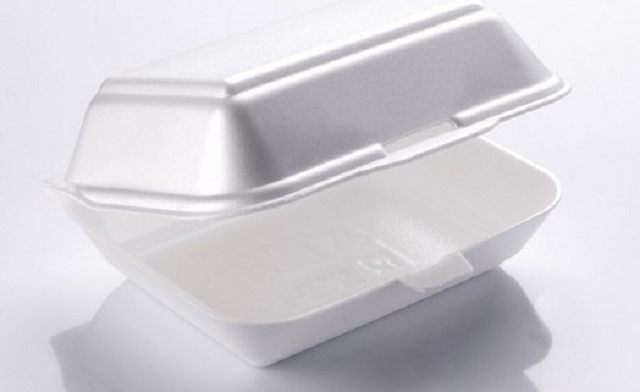EDITORIAL COMMENT: EMA toothless in enforcing SIs

The world is becoming more conscious of the need for greater protection of the environment and human health.
For centuries human activity has negatively impacted on the environment. Climate change is threatening the globe because, for long, man burnt fuels that depleted the ozone layer. Governments have realised that and are developing strategies to limit atmospheric pollution that, if it continues unchecked, can lead to the destruction of the earth.
Also, some foods that people ate or are still eating have sickened and killed millions around the world. Fatty foods, for example, taste and smell heavenly but are causing obesity and related health risks such as high blood pressure and heart disease, among others.
Generally, humanity is more aware of its environment and wellbeing. It is therefore taking steps to protect the environment and promote personal health.
Our Government has commendably come up with various policies and programmes for a healthier environment and population.
One development that captured national attention this week was the activation of a 2012 ban on the use of polystyrene material, commonly known as kaylite.
Kaylite is the most widely used form of packaging in the fast foods sector but exposure to chemicals emitted by heated kaylite causes headaches, weakness, respiratory tract, gastrointestinal and minor kidney effects. In addition, it decreases concentration abilities and may cause irritation of the mucous membrane and affect the eyes, nose and throat. Studies have shown too that increased styrene exposure leads to chromosomal damage, abnormal pulmonary function and cancer.
Another disadvantage of using kaylite is that, unlike other forms of packaging, it cannot be recycled and is non-biodegradable. Its composition of 90 percent air and 10 percent plastic makes it endure disintegration for up to 500 years, studies have revealed. Furthermore, the material has been blamed for blocking drainage systems because people throw the packaging away after they enjoy their fast foods.
Aware of these risks to humans and the environment, the Government banned the use of kaylite in 2012 but the ban had not been implemented until this week.
Environmental Management Agency (EMA), board chairperson Ambassador Zenzo Nsimbi, restated that ban in a statement on Wednesday:
“The Environmental Management Agency has with immediate effect activated Statutory Instrument 84 of 2012 (Plastic Packaging and Plastic Bottles) (Amendment) Regulations, 2012 (No 1.), which prohibits the manufacture or importation of expanded polystyrene (kaylite) for use or commercial distribution within Zimbabwe. The ban has been effected after wide consultation in order to protect the citizens of Zimbabwe from the environmental and health impacts caused by expanded polystyrene (kaylite).”
Those who continue using the material or selling it risk arrest and prosecution. The law provides for a fine of $5 000 or up to a year in prison for culprits.
The reaction to this has been mixed but much of it has come from the food sector and the general public who eat food packed in kaylite. Not much of it has come from the transport sector that uses the material to cushion cargo like furniture against possible damage.
The Government has a strong case against kaylite use so we don’t see anything wrong with the ban.
We acknowledge the obvious impact of the prohibition on viability of businesses that use them. Some may have stockpiles of kaylite intending to sell them or use as food packaging. There are actually some companies manufacturing the product.
With the ban in place, those with stockpiles have to switch to less environmentally damaging material while those who sought to sell theirs cannot legitimately do so now. Plants manufacturing them have to be switched off. These have a cost implication on businesses.
However, industry has no alternative – they must follow the law. There is no reason for anyone to seek a postponement of the implementation of the ban for it has been there since 2012. Actually, the ban was publicly announced then. The Government gave industry more than enough time to comply – five years – although the time was not expressly given. What was lacking was a Government resolve to effect it.
The food industry can try cardboard packaging as has been suggested by EMA. Many operators are using cardboard already. These haven’t lost any business. They are also being environmentally responsible.
Innscor, the country’s biggest fast food business has pledged to explore better packaging that doesn’t pollute the environment.
Mr Warren Meares, a senior official at Innscor said:
“We use them all the time to serve our three million customers in the country and the announcement by Government to stop using kaylites means we have to conform to the law. We will have to find a solution for a better packaging. We appreciate where the Government is coming from and we respect it.”
While we have nothing against the ban, we are concerned with the traditional weaknesses on the part of EMA to enforce compliance. The fact that the statutory instrument banning the use of kaylite was promulgated in 2012 but had not been enforced is evidence of that weakness.
We also recall that there is Statutory Instrument 98 of 2010 which prohibits the manufacture or use within Zimbabwe, commercial distribution or importation of plastic packaging with a wall thickness of less than 30 micrometres. There was much noise around this seven years ago. The thin plastic paper went off the market, but returned soon after.
So our position is that there is nothing wrong with the kaylite ban, there is nothing wrong with the thin plastic ban, but we are unhappy with EMA’s failure to enforce compliance.
Hopefully, they will up their game this time.










Comments